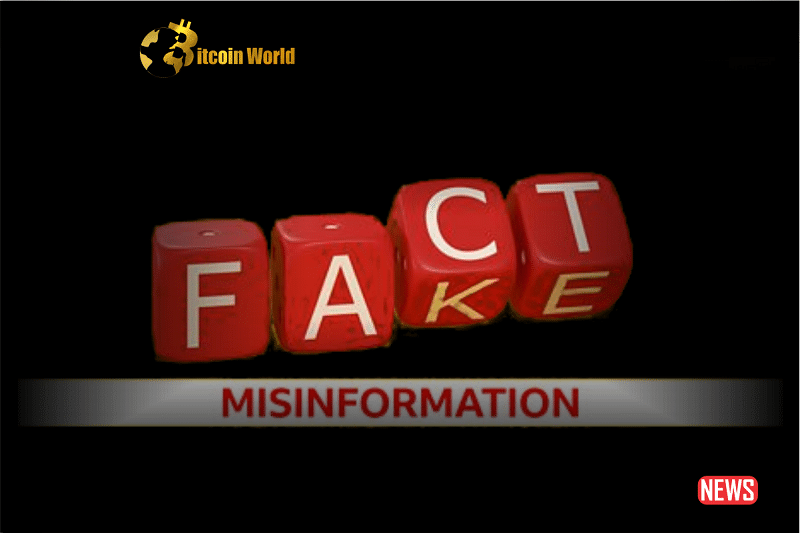Imagine scrolling through your social media feed and encountering information that’s simply not true. It’s a common experience, right? Well, the Australian government is taking a significant step to tackle this head-on. They’ve proposed a new draft bill that could mean serious consequences – think hefty fines – for tech giants like Google and Facebook if they fail to remove misinformation from their platforms. Let’s dive into what this all means.
What’s the Buzz About This New Bill?
Essentially, the Australian government is drawing a line in the sand. This draft bill aims to make digital platforms responsible for the content shared on their services. The core idea is simple: if it’s misinformation, it needs to come down. But how will this work in practice?
- Empowering the Watchdog: The Australian Communications and Media Authority (ACMA) is at the heart of this. The bill proposes giving ACMA the power to demand records of misinformation and disinformation from platforms like Google and Facebook.
- Setting the Rules: ACMA will also be able to create an industry-wide “code of practice.” This means they’ll be setting the standards for how these platforms should be dealing with misinformation.
- Show Us the Proof: Tech giants will be obligated to provide these records to ACMA upon request. This transparency is a key aspect of the proposed legislation.
What Happens if They Don’t Comply? Brace Yourselves for Big Numbers!
This is where things get interesting – and expensive for the tech giants. Failure to meet the standards set by ACMA could result in significant financial penalties. We’re talking about:
- Up to $4.6 million AUD (that’s about $6.88 million USD): This is the potential maximum fine per violation.
- Or… 5% of their global turnover: Yes, you read that right. For a company like Meta (Facebook’s parent company), this could mean fines in the ballpark of $5.3 billion USD (approximately $8 billion AUD)!
Why is the Government Taking This Stance?
Federal Communications Minister Michelle Rowland has been clear about the government’s motivation: keeping Australians safe online. She emphasizes that this bill is about giving ACMA the tools it needs to hold these powerful platforms accountable for the information circulating on their services. It’s about ensuring that the measures platforms implement are actually effective.
But What About Freedom of Speech? A Valid Concern
This is where the conversation gets a bit more complex. While the goal of curbing misinformation is widely supported, concerns have been raised about the potential impact on freedom of speech. The definition of misinformation in the draft bill is broad, encompassing unintentionally false, misleading, or deceptive content. Disinformation, on the other hand, is defined as intentionally spread misinformation aimed at causing serious harm.
Shadow Minister for Communications, David Coleman, has voiced these concerns, highlighting the need for clear guidelines on how content will be classified as misinformation or disinformation. It’s a delicate balance – protecting the public from harmful falsehoods without stifling legitimate expression.
What’s Next? Your Voice Matters!
The draft bill is currently open for public consultation until Sunday, August 6th. This is an opportunity for individuals and organizations to provide feedback and contribute to shaping this important legislation. The government has a history of engaging in tough negotiations with tech giants, as seen with previous clashes over data collection and media bargaining laws. This new bill is another chapter in that ongoing story.
Key Takeaways: What You Need to Know
- Accountability is the Name of the Game: The Australian government is serious about holding tech giants responsible for misinformation.
- Significant Financial Risks: The potential fines are substantial, signaling the government’s determination.
- ACMA’s Enhanced Role: The Australian Communications and Media Authority will have significant power in monitoring and enforcing these new regulations.
- Freedom of Speech Debate: The broad definition of misinformation raises concerns about potential overreach.
- Public Consultation is Key: Your feedback can influence the final form of the legislation.
Looking Ahead: A Shifting Landscape
This draft bill reflects a growing global trend of governments seeking to regulate the power and influence of tech giants. The outcome of this legislation in Australia could have significant implications for how online platforms operate and manage content worldwide. It’s a space worth watching closely.
Ultimately, the Australian government’s proposed bill is a bold attempt to address the pervasive issue of misinformation online. While the potential benefits of a safer online environment are clear, the challenges of implementation and the need to safeguard freedom of speech remain crucial considerations. The coming months will be critical in shaping the future of online information in Australia.
Disclaimer: The information provided is not trading advice, Bitcoinworld.co.in holds no liability for any investments made based on the information provided on this page. We strongly recommend independent research and/or consultation with a qualified professional before making any investment decisions.


